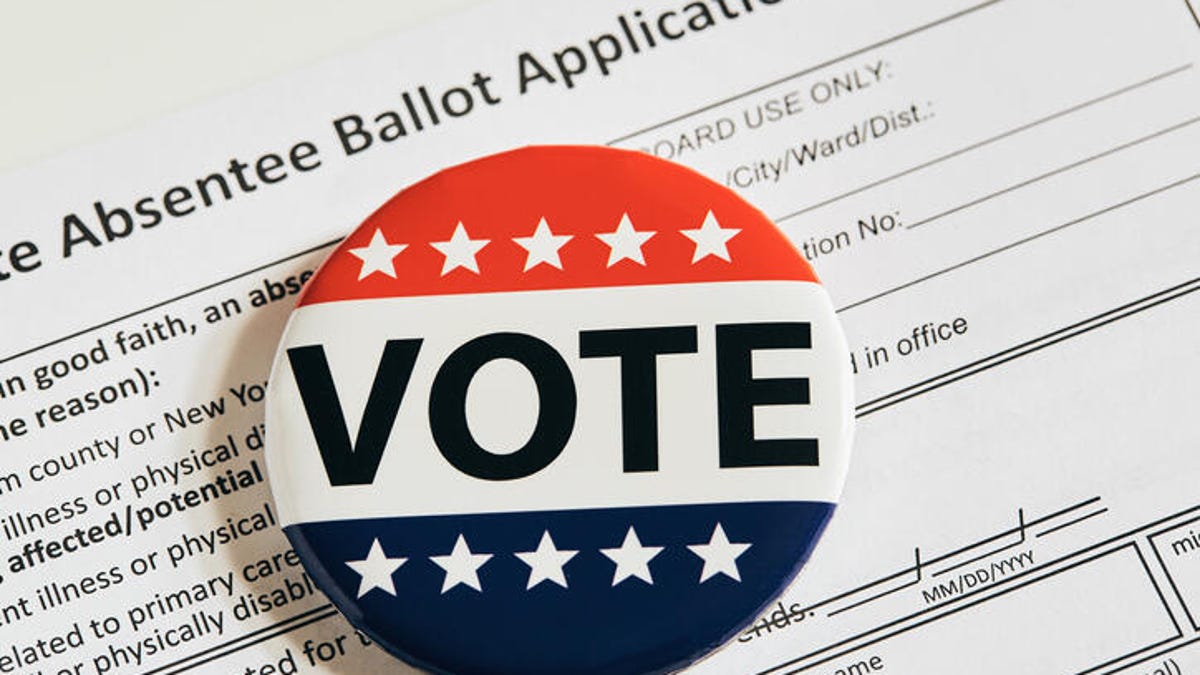Struggling with election anxiety? Use these tips to feel better
The 2020 presidential election is approaching, which means more stress for many Americans.

The upcoming presidential election is a source of stress for many Americans in a divided political landscape.
The upcoming US presidential election is riding on the heels of one of the most stressful times in history. Given that politics feel more divided than ever, a presidential election is enough to warrant some stress by itself. Unfortunately there's also a global pandemic and racial unrest -- among other issues -- to make it feel particularly stressful this year.
A 2019 poll from the American Psychological Association showed that 56% of Americans said the 2020 election is a stressor. That's up 4% over the number of people who reported stress around the 2016 election. The APA's July 2020 Stress in America survey showed that 77% of Democrats and 62% of Republicans feel that the uncertain political climate is a significant source of stress.
Dr. Sherry Benton, a psychologist and founder/chief science officer of TAO Connect, says she sees high levels of stress surrounding the November election for several reasons. "It feels like there's more riding on this particular election. People are very worried about what's going to happen to the country, so they have a very high level of anxiety. And that's true regardless of who you are supporting," Dr. Benton says.
Keep reading below for advice from Dr. Benton on ways to cope with the election stress this fall.
It's normal to feel stressed or anxious about the election
Given the amount of chaos happening in the world, it's normal to feel stressed or anxious. The same can be said surrounding the election. Don't get down on yourself for feeling this way, but try and figure out a solid strategy for coping so the stress doesn't impact your personal health more than is necessary.
"Feeling anxious about all of this right now is normal. And pretty much everyone is feeling it. It's not that there's something wrong with you if you are feeling it. And then you have to cope somehow and get on with your life," Dr. Benton says. Figuring out those coping strategies is key. One might be making sure self-care and rest is a priority during this time (see below).
Read more: How to deal with depression and anxiety during the coronavirus pandemic
Make self care a priority
"So much of this is completely out of your control but one thing you can control is how you take care of yourself," Dr. Benton says. And while self-care activities are personal and can vary, she recommends trying activities that promote mindfulness, like meditation.
"Exercise mindfulness, pay attention to your diet, get good sleep, take good care of yourself. Spend some time with people who are positive and supportive. All of those things can help," Dr. Benton says.
Reading or watching the news can increase stress if you don't set limits or boundaries around how often you do it.
Limit the news and social media
It's important to stay informed so you can make a good decision when you vote, but Dr. Benton recommends limiting the news to help with stress. "Avoid watching the 24-hour news channels all the time. Really limit your exposure and do a lot of self-care," she says.
Read more: How to set up screen time limits on your iPhone and iPad
Be mindful of how social media affects you during this time too. Social media can be a great way to stay connected to those you love, especially with social distancing measures, but it can also be a breeding ground for anxiety. Identify the accounts or people you follow who are negative, complain, or say things that trigger stress and unfollow them.
Sometimes the things that pop up on your feed are out of your control, which is why setting boundaries around when you engage with social media is helpful for keeping stress in check.
Vote early
Some states are allowing early voting and extending absentee ballots as a safety precaution to COVID-19. If you can, vote early, or at least as early as possible on Election Day so you can minimize stress around the actual voting process. Once you cast your vote, you know that you've done all that you can and the rest is out of your control, which may be a relief.
Take some time to research your state's voting requirements now so you have a solid plan well before Election Day. And if you plan to request an absentee ballot, do that as soon as possible to avoid mail delays.

